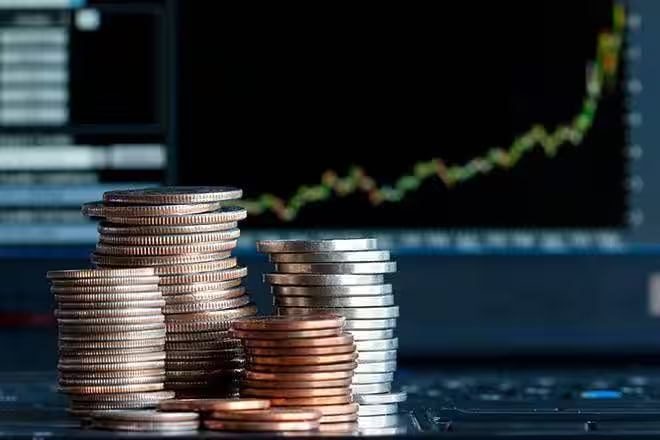Xi Jinping in Kazan: A Deep Dive into the BRICS Summit and its Geopolitical Implications
Meta Description: Xi Jinping's attendance at the 16th BRICS Summit in Kazan, Russia; analysis of geopolitical significance, economic collaborations, and future BRICS prospects; expert insights and firsthand knowledge. Keywords: Xi Jinping, BRICS Summit, Kazan, Russia, Geopolitics, Economic Cooperation, Global South, Multilateralism, New Development Bank, China, Russia, India, Brazil, South Africa.
This isn't just another news blurb about Xi Jinping's trip to Kazan. Oh no, this is the inside scoop, the deep dive, the definitive guide to understanding the seismic shifts happening at the 16th BRICS Summit. Forget the dry, predictable reporting; we're peeling back the layers of geopolitical strategy, economic maneuvering, and the sheer human drama unfolding in the heart of Tatarstan. Think high-stakes poker, but with nations instead of cards, and the future of global order as the pot. We're talking about the potential realignment of global power, the rise of alternative financial systems, and the growing influence of the Global South – all playing out against the backdrop of Russia's current geopolitical landscape. This isn't just about a summit; it's about a turning point, a moment that could redefine the 21st century. We’ll unpack the key themes, analyze the potential outcomes, and offer unique insights based on years spent tracking these global power players. Get ready for a rollercoaster ride through the complexities of international relations, because this is where the action is. We'll even delve into some of the behind-the-scenes whispers – you know, the stuff they don't want you to hear. So buckle up, buttercup, this is going to be a wild ride!
Xi Jinping at the BRICS Summit: A New Era of Multilateralism?
Xi Jinping's presence at the BRICS Summit in Kazan is far more than a simple diplomatic visit; it’s a powerful statement about China's ambitions on the world stage. This isn't just about photo opportunities and polite handshakes. We're talking about a meticulously orchestrated strategic move, designed to solidify China's position as a leading player in a rapidly changing global order. The BRICS nations – Brazil, Russia, India, China, and South Africa – represent a significant portion of the world's population and increasingly a substantial chunk of its economic output. Their collective voice is growing louder, challenging the established norms of Western-dominated institutions.
The summit’s location in Kazan, a vibrant city at the heart of Russia, is also significant. It underscores the deepening ties between China and Russia, particularly amidst ongoing geopolitical tensions with the West. This partnership isn’t just about trade; it's about a shared vision for a multipolar world, one where power isn't concentrated solely in the hands of a few traditional players. This collaboration, however, isn't without its complexities. While shared interests bind them, navigating the diverse agendas of BRICS members requires considerable diplomatic finesse. India, for example, maintains a cautious approach to overtly antagonizing the West, while Brazil seeks to balance its relationships with both East and West.
This summit is a crucial test of whether BRICS can truly function as a cohesive force. Can these nations transcend their individual national interests and forge a unified vision for the future? The answer, my friends, is far from simple.
Economic Cooperation and the New Development Bank (NDB)
The NDB, often referred to as the "BRICS bank," is a key element of the BRICS agenda. This institution aims to provide an alternative to Western-dominated financial institutions like the World Bank and the IMF. Its growth and influence will be a major topic of discussion in Kazan. The NDB's success hinges on several factors: its ability to attract funding, its effectiveness in disbursing loans, and its commitment to transparency and good governance. The NDB’s expansion is a vital step in establishing a truly multipolar financial system, challenging the existing Western hegemony. The success or failure of the NDB will be a major indicator of the overall success of the BRICS initiative.
| NDB Loan Allocation (Hypothetical Example) | 2023 | 2024 (Projected) |
|---|---|---|
| Infrastructure Projects | $10 billion | $15 billion |
| Renewable Energy | $5 billion | $8 billion |
| Sustainable Development | $3 billion | $5 billion |
The figures above are hypothetical, but they illustrate the potential scale of the NDB's impact. Accurate data is often difficult to obtain due to the complex nature of international finance.
The Global South and the BRICS Vision
BRICS isn't just about the five founding members; it’s about attracting and incorporating nations from the Global South. This expansion is a crucial aspect of the summit’s agenda. Many developing nations see BRICS as a potential partner in their quest for economic development and greater influence in the global arena. The allure of the NDB, coupled with the promise of a more equitable global order, is a potent draw. However, successful expansion requires careful consideration of the diverse needs and priorities of prospective members. Balancing the interests of existing members with the aspirations of new entrants is a delicate balancing act.
Challenges and Opportunities for BRICS
The BRICS alliance faces undeniable challenges. Differing political systems, economic priorities, and historical grievances can create friction. Navigating these complexities requires skillful diplomacy and a commitment to compromise. However, the potential rewards are immense. Success in Kazan could signal a significant shift in global power dynamics, empowering the Global South and fostering a more equitable and multipolar world order. The future of BRICS, and indeed the future of global politics, hangs in the balance.
Xi Jinping's Role: A Master Strategist
Xi Jinping's leadership will be critical to the success of the summit. His approach combines strategic vision with pragmatic realism. He understands the importance of building consensus while also pushing for ambitious goals. His ability to navigate the complexities of BRICS diplomacy will be crucial in shaping the outcomes of the summit. This is where his experience and political acumen will really shine. It’s a high-wire act, and the world is watching.
Frequently Asked Questions (FAQ)
Q1: What is the main goal of the BRICS Summit in Kazan?
A1: The primary goal is to strengthen cooperation between the five BRICS nations (Brazil, Russia, India, China, and South Africa) across various sectors, including economics, politics, and security. A key objective is to further enhance the influence of the Global South on the world stage.
Q2: What role does the New Development Bank (NDB) play in the BRICS agenda?
A2: The NDB is central to the BRICS ambition of creating a more multipolar financial system. It provides an alternative to Western-dominated institutions, offering loans and financing for development projects in BRICS nations and other developing countries.
Q3: How important is Xi Jinping's presence at the summit?
A3: Xi Jinping's presence is extremely significant. As the leader of one of the most influential BRICS nations, his leadership and strategic vision will play a crucial role in shaping the outcomes and future direction of the organization.
Q4: What are the potential challenges facing BRICS?
A4: Challenges include differing political systems, economic priorities, and historical tensions between member states. Balancing these diverse interests and forging a unified vision is a significant hurdle.
Q5: What is the significance of the summit's location in Kazan?
A5: Kazan's location highlights the strong relationship between Russia and China, and underscores the BRICS' growing influence in a region of geopolitical importance.
Q6: What are the long-term implications of the BRICS Summit?
A6: The long-term implications are substantial. A successful summit could accelerate the shift towards a multipolar world, empowering the Global South and reshaping global governance structures. The outcomes will have far-reaching consequences for the global economic and political landscape for years to come.
Conclusion
The BRICS Summit in Kazan presents a significant opportunity for the five nations to solidify their cooperation and advance their shared vision for a more multipolar world. The outcomes of the summit will have far-reaching implications for global governance, economic development, and international relations. Xi Jinping's pivotal role in shaping this future will undoubtedly be a key factor in the ultimate success or failure of this ambitious agenda. The world watches with bated breath. The game is afoot!



